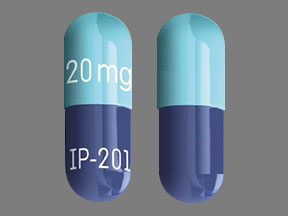
Tivorbex Coupons & Savings Card – Discount Prices from $912.61
Brand for: Indomethacin
My prescription
Edit
20MG, Indomethacin (30 Capsules)
Select pharmacy

CVS
$912.61
COUPON PRICE
Walmart
$924.40
COUPON PRICE
Walgreens
$935.39
COUPON PRICE
Albertsons
$945.43
COUPON PRICETivorbex savings card
Show this card to your pharmacist
CVS
$912.61
BIN
ID
PCN
GRP
019876
LH04418F40
CHIPPO
LHX
Powered by
Related NSAIDs prescriptions
More prescriptions for rheumatoid arthritis
Related NSAIDs prescriptions
More prescriptions for rheumatoid arthritis
Price history for Tivorbex (brand) & Indomethacin (generic)
30 Capsules, 20MG
Average retail price for Tivorbex
Average retail price for Indomethacin
Average SaveHealth price for Indomethacin
Our price history data is based on aggregated prescription data collected from participating pharmacies in America. Our prescription data updates daily to reflect the latest price changes. If you notice a missing data point, it means there wasn't sufficient data available to generate a monetary value for that date.
Over the last 12 months, the average discount price of Tivorbex is $917.14 using the SaveHealth savings card. That's an average savings of 37.95% on Tivorbex with our discount card.
*Retail prices are based on pharmacy claims data, and may not be accurate when we don't have enough claims.
Tivorbex (Indomethacin) dosage forms
Dosage Quantity Price from Per unit 20MG 30 Capsules $912.61 $30.42
| Dosage | Quantity | Price from | Per unit |
|---|---|---|---|
| 20MG | 30 Capsules | $912.61 | $30.42 |
What is Tivorbex used for?
Tivorbex is used to relieve mild to moderate pain. It is a nonsteroidal anti-inflammatory drug (NSAID) that helps reduce inflammation and pain in conditions such as arthritis or other musculoskeletal disorders.
Using the SaveHealth discount card, what is the price of Tivorbex without insurance?
Using the SaveHealth discount card, the price of Tivorbex without insurance is $912.61.
What is the price of Tivorbex at CVS?
The price of Tivorbex at CVS is $912.61.
What is the price of Tivorbex at Walgreens?
The price of Tivorbex at Walgreens is $935.39.
What is the price of Tivorbex at Walmart?
The price of Tivorbex at Walmart is $924.40.
